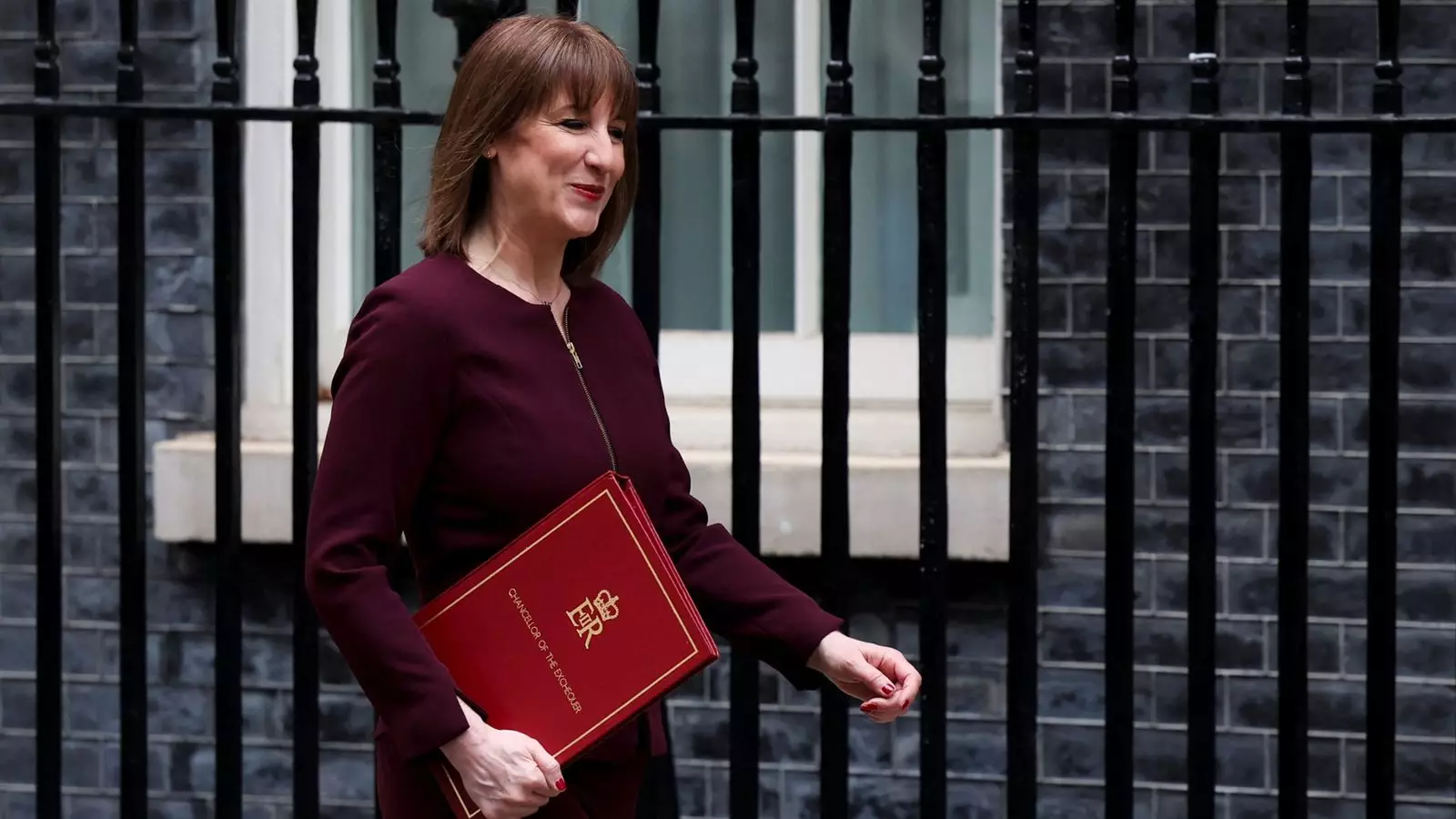The UK’s economic future appears bleaker than ever as the Office for Budget Responsibility (OBR) has significantly slashed the growth forecast for 2025 from an already modest 2% to a mere 1%. Chancellor Rachel Reeves, in her recent spring statement, tried to strike an optimistic note despite this dismal revision. However, one cannot help but question the tenability of her assertions. While the OBR has upgraded projections for the remaining years of the parliamentary term, this highlights a troubling pattern of prolonged stagnation rather than robust recovery.
It is almost perplexing to witness a government confidently stride onto the national stage, promising prosperity while grappling with economic constraints that appear to stretch tighter than ever. For a Chancellor who claims to be “not satisfied with the numbers,” there is an unmistakable disconnect between intent and reality. The incremental improvements set forth for subsequent years might simply reflect a desperate hope rather than substantive economic strategy.
Promises and Projections: Faith vs. Evidence
Reeves insists that growth will rebound to 1.9% in 2026 and hover around 1.8% through to 2029. Those figures may draw applause from party loyalists, but skepticism ensues from a wider audience aware that robust economic growth cannot merely be summoned through dreams and promises. When the Chancellor speaks of “hard yards” needed for reform to manifest in the everyday economy, one is compelled to ask: How long must the nation wait?
She pointed to modifications in the National Planning Policy Framework as a solution, aiming to boost GDP through housing reforms. However, the potential 0.2% uptick in real GDP by the end of the decade feels more like wishful thinking than a sure-fire trajectory of economic recovery. One cannot help but wonder if the goal of economic revitalization has too often been treated as a tick box on a government agenda rather than a genuine commitment to fostering a resilient economy.
Fiscal Maneuvering: A Double-Edged Sword
In an effort to manage a troubling deficit projected at £36.1 billion by 2025/26, Reeves’ team has also outlined measures to save approximately £4.8 billion from welfare budget cuts. While cutting costs may temporarily ease the fiscal bloating, it raises serious moral questions about the government’s priorities. Who pays the price for this “solution”? Vulnerable populations relying on support may bear the brunt of these austere cuts, exemplifying a huge democracy’s overarching tendency to siphon resources from the disadvantaged while presenting the facade of economic responsibility.
Beyond mere budget lines, the Chancellor announced a crackdown on tax evasion aimed at generating an additional £1 billion in revenue. While this is commendable, it does provoke the question of why such initiatives weren’t implemented earlier. It paints a picture of a government forced to act reactively rather than one that is strategically pre-emptive. It’s a grim reality when the perception is that the administration can only respond to crises rather than architect a proactive economic climate.
Restructuring Ambitions: Soundbites or Substance?
The ambitious housing reforms that Reeves touted as an economic miracle hardly masquerade as transformative when viewed through the lens of historical context. With the promise of reaching a 40-year high in house building, one wonders, will this effort merely be a temporary fix to a longstanding crisis exacerbated by systemic policy failures? The increased focus on defense spending, while perhaps necessary, risks diverting attention and funding away from social programs vital for sustaining everyday lives. The juxtaposition between escalating military expenditure and a dwindling welfare budget reflects a misalignment in national priorities that cannot continue unchecked.
The announcement of a voluntary redundancy scheme for civil servants, while offering potential savings, raises myriad concerns. Streamlining the government might appear pragmatically lean, but it may also lead to a hollowed-out structure that struggles to deliver essential services effectively. Vague aspirations for savings should not come at the cost of public good.
The Need for Genuinely Progressive Reform
As the political rhetoric ramps up, criticism from the opposition, notably from Shadow Chancellor Mel Stride, serves as a stark reminder. Stride accused Reeves of being a “gambler with half-fiddled fiscal targets” and criticized the absence of a coherent economic strategy. Such words carry weight in a climate where trust in political leadership feels tenuous at best.
In an age where economic indicators should evoke faith and confidence rather than despair, the UK finds itself at a crossroads. Striving for a genuinely equitable framework requires not just reform but transformation. As Reeves navigates these fiscal waters, she must face the inconvenient truth that economic policies should focus on inclusivity and sustainability, rather than superficial fixes that ultimately prove hollow. Way forward may involve hard decisions, but those hard truths are essential for charting a new course towards genuine economic stability.


Leave a Reply